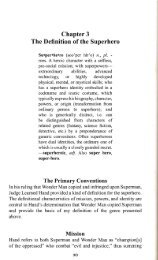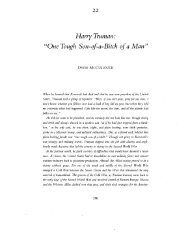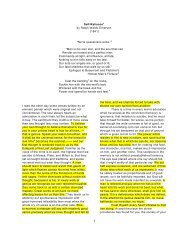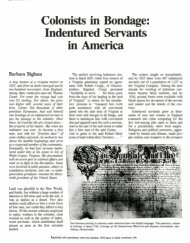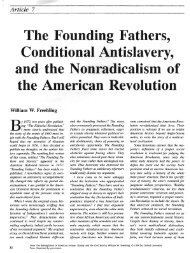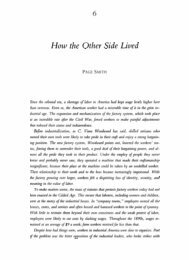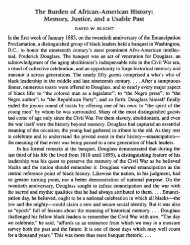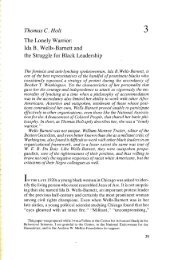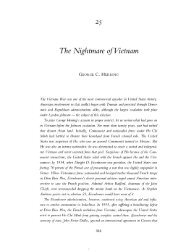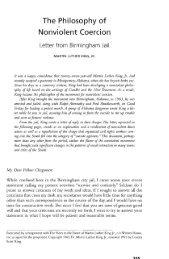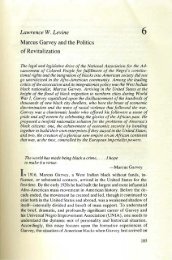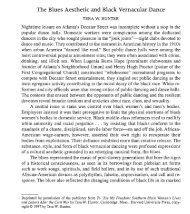Mary - Journeytohistory
Mary - Journeytohistory
Mary - Journeytohistory
You also want an ePaper? Increase the reach of your titles
YUMPU automatically turns print PDFs into web optimized ePapers that Google loves.
286 From Slavery to Freedomblacks and to leave white groups to fight elections out among themselves. Wherethe Populists were unable to control the black vote, as in Georgia in 1894, theybelieved that the Democrats had never completely disfranchised blacks becausetheir votes were needed if the Democrats were to stay in power. This belief ledthe defeated and disappointed Tom Watson to support a constitutional amendmentexcluding blacks from the franchise-a complete reversal of his positionin denouncing South Carolina for adopting such an amendment in 1895.With the collapse of the agrarian revolt in 1896, the movement for completedisfranchisement of blacks helped to reunite the white South. The poor,ignorant white farmers reverted to their old habits of thinking and acting, comfortedin their poverty by Conservative assurances that "Negro rule" must beavoided at any cost. White politicians might look back to the time in the 1890swhen they were on the verge of joining their darker brothers and sisters to fightfor a common cause. The poor whites could say with one of their leaders thatthe "Negro question" was an everlasting, overshadowing problem that served tohamper the progress of poor whites and prevent them from becoming realisticin social, economic, and political matters.THE TRIIPH OJ? WHITE SUPREMACYWhen it became evident that white factions would compete with one anotherfor the black vote and thus frequently give blacks the baiance of power, it wastime for complete disfranchisement of blacks, the Fifteenth Amendmentnotwithstanding. On thiS, most Southern whites were agreed. They differedonly over the method of disfranchising blacks. The view prevailed that nonebut people of property and intelligence were entitled to suffrage. As one writerput it, white Southerners believed that "no person should enjoy the suffrageunless he gives sufficient evidence of his permanent interest in and attachmentto the community." And yet many white Southerners opposed such stringentdisfranchisement because it would disqualify numerous whites. Not surprisingly,poor whites were especially apprehensive. Some of them had been disfranchisedby earlier measures, and when competition grew keen between rivalwhite groups, the Conservatives actually barred Radical whites from the pollsand at the same time permitted their own black supporters to vote. More poorwhites were bound to be disfranchised by any new measures. The sponsors ofa stricter suffrage had to be certain that they did not contravene the FifteenthAmendment. Despite the fact that the Supreme Court had refused to apply it inthe Reese and Cru.ikshank cases, there was no guarantee that the Court wouldview so favorably any state action obviously designed to disfranchise a groupbecause of its race.These were the problems that had to be solved by state constitutional conventionswhen they undertook to write into their fundamental law a guaranteeof white supremacy. It was in Mississippi, where a majority of the populationwas black, that the problem was first faced and solved. As early as 1886



